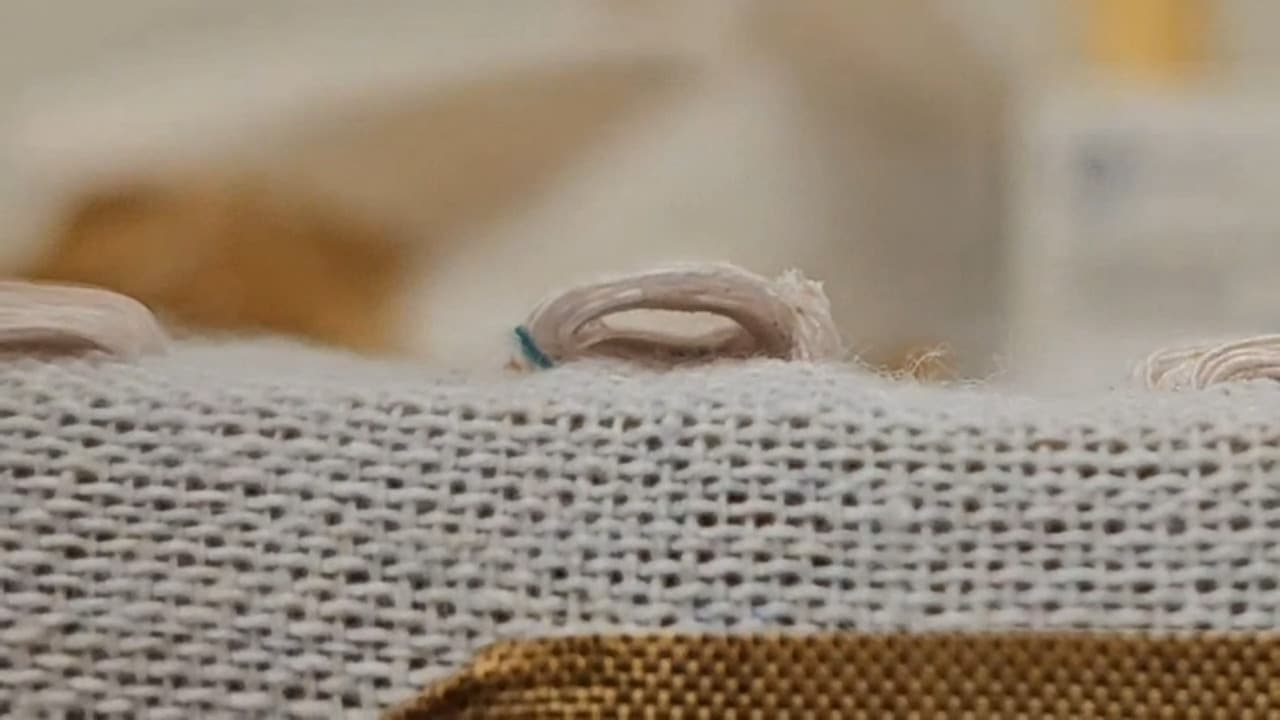Harold Freeman Wins Holladay Medal, NC State’s Highest Faculty Honor

Dr. Harold S. Freeman, an internationally recognized dye chemist, has received the Alexander Quarles Holladay Medal for Excellence, the highest faculty honor bestowed by the trustees and NC State University. Dr. Freeman, the Ciba-Geigy Professor of Dyestuff Chemistry at the Wilson College of Textiles at NC State, was one of three 2017 recipients.
The Holladay Medal is named for Col. Alexander Quarles Holladay, the university’s first president. The award recognizes members of the faculty whose careers have demonstrated outstanding achievement and sustained impact in teaching, research or extension and engagement.
In Freeman’s case, his impact extends to all of those areas.
“Professor Freeman’s 34-year career at NC State has had a remarkable positive impact on the education and professional development of hundreds of undergraduate students, graduate students, post-doctoral research associates, staff members, junior and senior faculty members and visiting scholars and industry professionals from around the world. This impact has been achieved through Dr. Freeman’s visionary leadership in building an internationally recognized research program in dye chemistry,” said Dr. David Hinks, dean of the Wilson College of Textiles.
Teaching and Mentoring
Freeman earned both a master’s and Ph.D in organic chemistry at NC State while working full time as an organic chemist at Burroughs-Wellcome Company. As a part-time graduate student, he took doctoral courses in dye chemistry and served as a guest lecturer in those courses shortly after finishing his Ph.D. He joined the Textile Chemistry faculty as an associate professor in 1982 and was promoted to the rank of professor in 1989. In 1990 at the age of 39, he was elevated to an endowed professorship, the Ciba-Geigy Professor of Dyestuff Chemistry, an acknowledgement of his status as the top dye chemist in his department.
Freeman initiated doctoral level research in the dye synthesis area at NC State, leading to the first dye chemistry graduate from the Fiber and Polymer Science program in 1988 and marking the beginning of a steady stream of graduate students to complete studies under his direction.
During the three decades that followed his arrival at the Wilson College of Textiles, Freeman served as a compassionate mentor to many students including 45 master’s and Ph.D. students from 10 countries.
“If it were not for his guidance and persistence, I would have changed my undergraduate major and I would not have been committed to attending graduate school,” said Tova Williams, a Ph.D. student in the Fiber and Polymer Science program and a National Science Foundation Graduate Fellow. “Throughout the years, Dr. Freeman has been someone I can confide in and seek academic, career and personal advice. I admire him, because I envision myself filling his shoes one day.”
Research
Freeman is highly sought after for his expertise pertaining to the design of dyes for outdoor applications, where resistance to sunlight-induced fading is critical, and dyes that pose little threat to human health or the environment if released into public waterways following various dyeing processes. His green chemistry approach to dye design led to environmentally friendly alternatives to cancer-causing raw materials and toxic metals that were previously used in manufacturing dyes for textiles and media such as paper and plastics.
“His research has advanced the coloration industry’s understanding of how the structures of dyes affect their properties in ways that are changing how the current generation of scientists are developing commercial colorants, from dyes for hair and cosmetics to dyes as drugs for cancer treatment,” said Hinks.
His life improving research has reached far beyond Raleigh and the United States. A collaborative project with a faculty member at the University of Campinas in Brazil positively impacted many people.
“We discovered the compounds that were adversely impacting a drinking water treatment plant in São Paulo state. Because of our work we were able to protect the health of more than 60,000 people,” said Gisela De Aragão Umbuzeiro, an associate professor and Fulbright Fellow who would go on to work with Freeman on a project in his lab at NC State. “At that time I learned what an outstanding professor and mentor he is. He knows really a lot about chemistry of dyes and he is always keen to share his knowledge with his students from all levels.”
On April 26, 2017, Freeman was honored specifically for his research, being named a member of NC State’s Research Leadership Academy (RLA). The RLA promotes a culture of leadership in research, scholarship and mentoring at NC State. The academy operates as the faculty-driven epicenter for the development and implementation of best practices in the empowerment of faculty at all levels and represents the varied knowledge, expertise and backgrounds of NC State faculty. As a new RLA member, he also received the Alumni Association Outstanding Research Award.
Engagement and Extension
Freeman’s world-class standing in his field has been validated over the years not only by praise from colleagues and students, awards and receipt of an endowed professorship, but also by his selection as co-editor of Dyes and Pigments, the top journal in his field. He serves on three additional editorial boards in the textile coloration arena; has co-edited four books; authored or co-authored well over 200 scientific papers; and continues to be in high demand as a speaker before international audiences. In addition, he has consulted for more than 20 companies.
In 2004, Freeman received the highest award given in the field of textile chemistry, The Olney Medal, presented by the American Association of Textile Chemists and Colorists for outstanding achievement in the field. To this recognition, the Society of Dyers and Colourists added its Gold Medal, in 2012, for sustained contributions to coloration publications.
While maintaining an outstanding record as a researcher, Freeman served eight years as associate head and director of graduate programs in the Textile Engineering, Chemistry and Science department, followed by 12 years as associate dean for research at the College level. In this role, Freeman steered the College’s research strategy and helped to more than triple the schools’ extramural research budget.
During this time, Freeman continued to teach a full load of undergraduate and graduate courses, along with the research and administrative load. He now teaches required and elective courses to undergraduate students in the color chemistry program, along with his doctoral course in dye chemistry, earning high marks for his level of preparation and ability to communicate complex course material in understandable terms.
In addition to building a strong record of personal achievements, Freeman has served as mentor to various colleagues, helping to nurture the next generation of NC State faculty.
“Dr. Freeman’s unwavering commitment to fundamental principles of ethics, integrity, quality and service to his fellow citizens are a guiding light and inspiration to all who have the pleasure of working with him. He cares about the journey and development of the whole individual, not just their research success or educational success. I would not be in the remarkably privileged position I am today if it were not for Dr. Freeman’s mentorship of me,” said Hinks.
For Freeman, the Holladay Medal brings gratitude. Not only for the recognition, but for those who have been a part of his NC State career.
“When considering the group of extraordinary faculty who have received this medal, it was rewarding to learn that my peers viewed my career at NC State in the same light. It has been a pleasure to work with the groups of amazing students and colleagues who made this honor possible. They were and are not only gifted academics but also wonderful people,” said Freeman.
- Categories:


